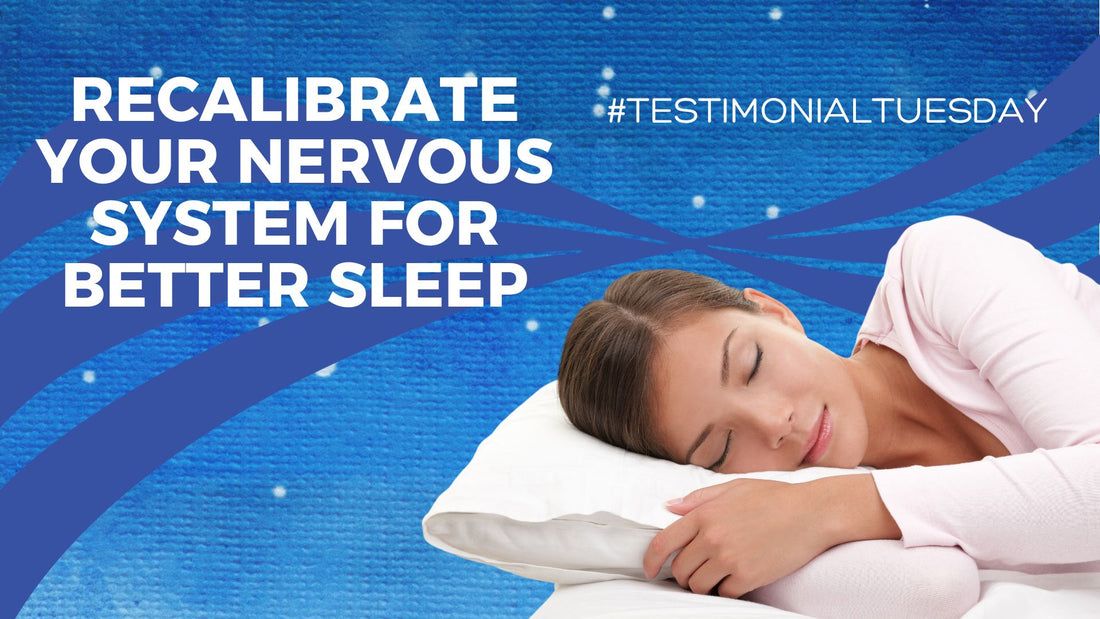
Daylight Savings: Recalibrate Your Nervous System for Better Sleep
Share
If you live in one of the countries highlighted on the map below, you're very familiar with the phenomenon known as Daylight Savings Time (DST) and its intricate relationship with our sleep patterns. Today, we're going to give a short overview of how DST affects our sleep patterns, and also share a video from a woman who has been able to take control of her sleep with the Rezzimax Tuner!

Unraveling Daylight Savings Time
Was Daylight Savings Time invented by Benjamin Franklin? Contrary to popular belief, this isn't true- Mr. Franklin merely suggested that Parisians change their sleep patterns to conserve candles and lamp oil.
Daylight Savings Time (DST) as we know it didn't come to fruition until the early 20th century when countries around the world sought ways to maximize daylight hours and conserve energy during World War I. It was first implemented by Germany in 1916, followed by other countries.
Today, DST is practiced in various forms across much of the world, although its implementation and scheduling differ between countries and regions.
The Sleep Conundrum
Our bodies have their own internal clocks on a natural 24-hour cycle known as the circadian rhythm which is influenced by external cues, such as light and darkness. The suprachiasmatic nucleus (SCN) in the brain's hypothalamus acts as the body's master clock, coordinating various physiological processes to align with the external environment. Exposure to light- particularly natural daylight, helps to regulate the circadian rhythm by signaling the body to awaken and become alert during the day and prepare for sleep at night. However, the abrupt time change associated with DST can disrupt this delicate balance, leading to confusion and disorientation as the body struggles to adjust to the new schedule.
Sleep is a complex process characterized by distinct stages:
Non-rapid eye movement (NREM) - NREM sleep consists of three stages, each associated with different patterns of brain activity and physiological changes.
Rapid eye movement (REM) - REM happens mainly during the latter half of the night and involves vivid dreams and rapid eye movements. External factors, such as DST, can affect the timing and duration of these sleep stages and become disruptive to our sleep continuity, fragmentation, and overall sleep quality.
Our bodies need a good night's sleep in order to function properly. If we don't get enough quality rest, it can affect cognitive function, memory, attention span, mood regulation, immune function, and physical health. Chronic sleep deprivation has been linked to a myriad of health problems, including obesity, diabetes, cardiovascular disease, and impaired immune function. You might be sleep deprived if you find yourself having a "brain fog", struggling to make decisions or remembering information.
The Dark Side of Daylight Savings Time
You've probably read about the rise of automobile accidents, workplace injuries and medical errors during the week immediately following DST. This change in time can significantly disrupt our body's rhythms and level of functioning. It affects a person's performance at otherwise simple and autonomous tasks.
DST can really send your mental health for a loop, as sleep plays a vital role in regulating mood, emotions, and stress levels. Researchers have found a connection between DST and an increased risk of mood disorders such as depression and anxiety, as well as exacerbations of existing mental health conditions. It can disrupt the body's internal clock and lead to feelings of fatigue, irritability and disorientation, which may contribute to mood disturbances and emotional instability. Lastly, broken sleep from DST can interfere with the consolidation of emotional memories and processing of stressful experiences, further exacerbating mental health issues.
Navigating the Time Change
I think we'd all love to see the day when we don't need to switch our clocks twice a year. Until then, here are a few tips on how to take the edge off of its effects on your mind and body:
Gradually adjust your sleep schedule - Starting a week or more before DST, try going to sleep a little earlier every night.
Manage your exposure to light - Turn down your lights as bedtime approaches. In the morning, leave a curtain open to let in the sunrise or use a light-based waking alarm. Make sure to get enough sunlight throughout the day.
Turn on your Rezzimax Tuner - Our algorithms are a great way to communicate with your nervous system! The pre-programmed blue and green modes can calm an overly excited body, while the red mode can stimulate your senses to help you in waking up. Going to sleep with the white mode can help your mind to meander into a state of restfulness.
Sleeping Successfully with the Rezzimax Tuner - A Personal Experience
Are you one of the nearly twenty percent of American adults who take medication to sleep? Melatonin use is also rising dramatically. While these options can be used to force your body into sleep, there are better options to bring your nervous system back into a natural state of rest. Today we're excited to share a video from one of our customers who has been able to regain control of her sleeping habits with the Rezzimax Tuner! Here is her experience in her own words:
"I first started using the Rezzimax Tuner and my sleep went from like, you know, struggling here (high) to here (low). I actually feel a lot better. I feel like I'm getting a deeper sleep, and that's just from using it the first couple of days.
I'm pretty much a zombie in the morning, so I really, really struggle. My family just knows: don't interrupt Mom in the morning.
I've been using the Rezzimax on my feet in the mornings. I'll put it on a red cycle and run it through once. Then I'll run it through either the blue one or the green several times.
It's been really helpful. I still struggle, I'm still a zombie in the mornings, but it gets me flowing to where I can actually get up and go do things and help my kids. I really appreciate that."